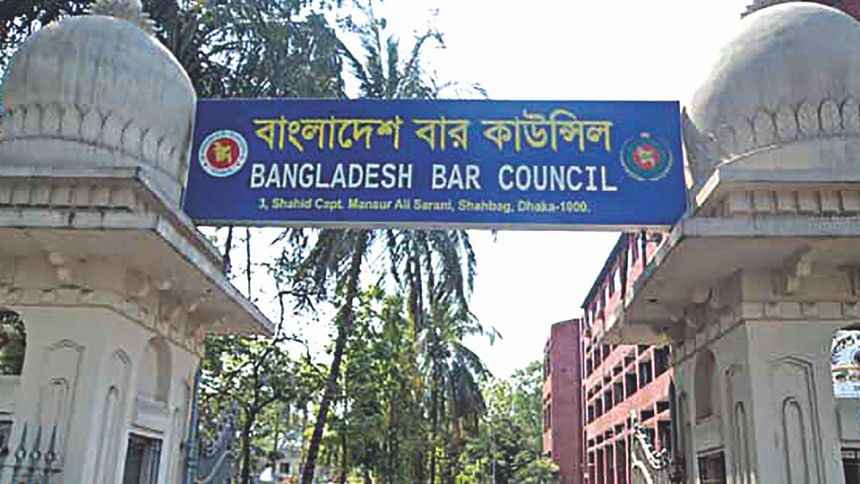How does the Bar Council Tribunal function

All lawyers who practice in Bangladesh must maintain the ethical standards imposed by the Bangladesh Bar Council. As an arm of the Bangladesh Bar Council, the Bangladesh Bar Council Tribunal investigates and prosecutes complaints against lawyers. For example, in Islamia Automatic Rice Mills Ltd v Bangladesh Shilpa Rin Sangstha and others 55 DLR (2003), the High Court Division observed that, if a lawyer is found to be careless in rendering legal advice in the course of his professional duty, he would be liable for negligence. In another case, namely Bangladesh Bar Council v Khawja Abdul Gani & another 50 DLR (1998), the Appellate Division found the respective lawyer liable for professional misconduct when he filed vokalatnama on behalf of the plaintiff as well as on behalf of the defendant in the same suit.
The Bar Council is empowered to constitute one or more Tribunals where complaints regarding the advocate's professional misconduct, criminal or unjust activities are adjudicated. In a recent exercise of right to information (RTI), the Daily Star has come to know that at present there are five such Tribunals. Each Tribunal consists of three persons of whom two are elected by the Council from amongst its members and the other one is a person co-opted by the Council from amongst the advocates on the roll, and the senior-most advocate amongst the members of a Tribunal functions as its Chairman.
The procedure of filing an application against the lawyer for professional misconduct is very simple. One can send a complaint to the Bar Council by email, facsimile or post outlining the details of concerns by using the complaint form. The complaints must be in writing and the document must be signed. The fee for filing a complaint is BDT 1000/. One should also supply photocopies of any papers relevant for the complaint (such as letters or cancelled cheques that relate to the problem).
Upon receipt of a complaint made to it by any Court or by other person that any advocate has been accused of misconduct, the Bar Council prima facie scrutinises the case. After primary scrutiny, the Bar Council may reject the complaint. However, if it does not summarily reject the complaint, it shall refer the case for disposal to a Tribunal. The Council may also of its own motion refer any case in which it has reason to believe that any such advocate has been so guilty. After that, upon completion of enquiry, the Tribunal may either dismiss the complaint or, where reference to the Tribunal was made at the motion of the Bar Council, direct that the proceedings be filed; or it may make an order imposing penalty. If an advocate is found guilty of professional or other misconduct, he may be reprimanded, suspended or removed from practice. The Daily Star has come to know from the Bangladesh Bar Council that in the last four years, from 2014 to 2018, 378 complaints were made and 250 of them have been disposed till date.
Where the Tribunal makes an order for the suspension of an advocate from practice, it shall specify the period of suspension, and for that period the advocate shall be debarred from practising in any court or before any authority or person in Bangladesh. In the 250 complaints lodged in between 2014 to 2018, fifteen lawyers have been penalised with suspension for limited/ permanent time period. Among these, nine have lost their license forever and 6 of them have lost it for a limited period of time. It is to be noted that there is no provision for appeal in the Bar Council Tribunal.
However, the Tribunal may, of its own motion or on application made to it in this behalf, review any order passed and maintain, vary or rescind the same, as it thinks fit. Moreover, if any person is aggrieved by an order of a Tribunal, he may, within ninety days from the date of the communication of the order to him, prefer an appeal to the High Court Division (HCD) of the Supreme Court. Every such appeal shall be heard by a Division Bench of the HCD which may pass such order thereon as it deems fit and the order of the HCD shall be final. However, the HCD may, for sufficient cause, direct the stay of such order on such terms and conditions as it may deem fit. For example, in the Khawja Abdul Gani Case, the HCD substituted the punishment of reprimand in place of debarring the lawyer for 5 years as in fact no harm was done to the lawyer himself.
Prepared BY Law Desk.

 For all latest news, follow The Daily Star's Google News channel.
For all latest news, follow The Daily Star's Google News channel. 



Comments